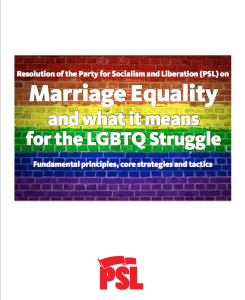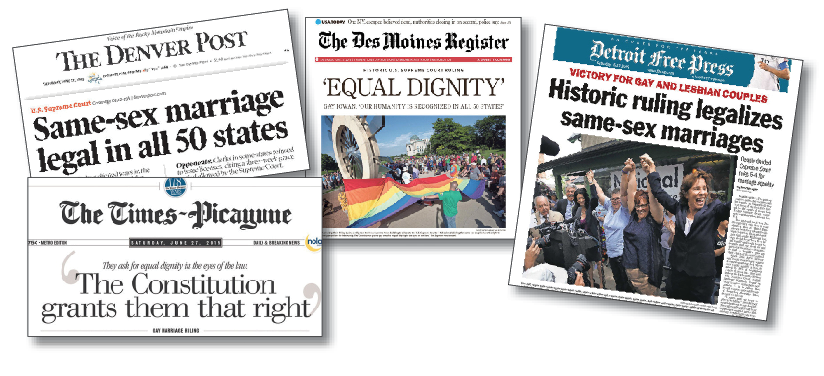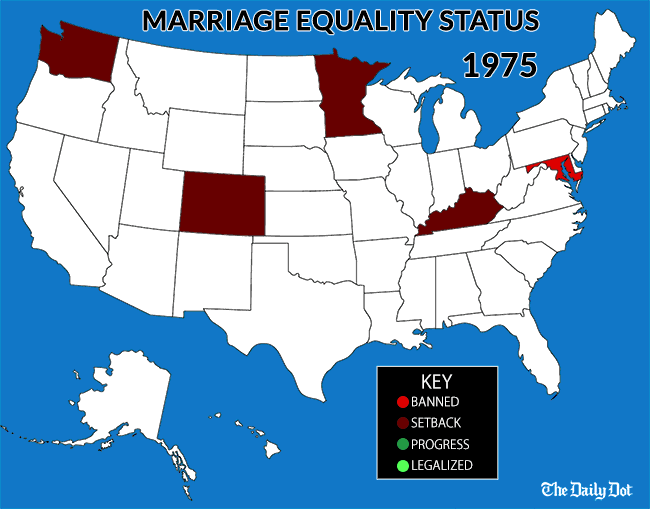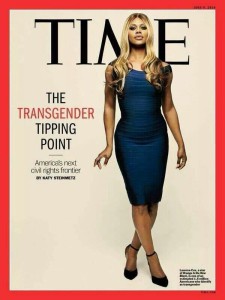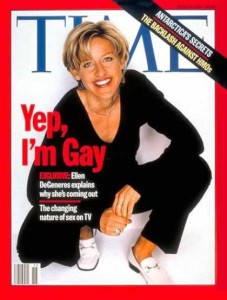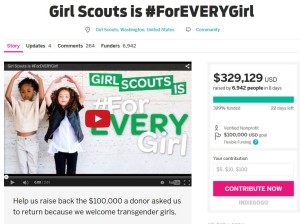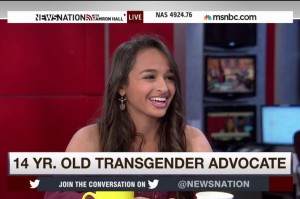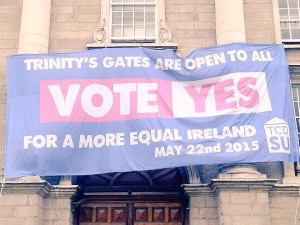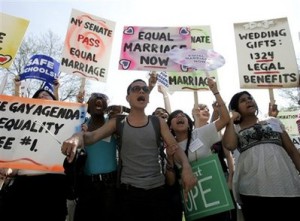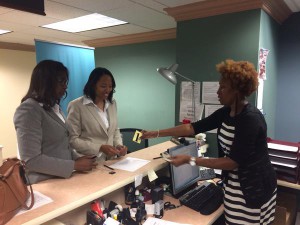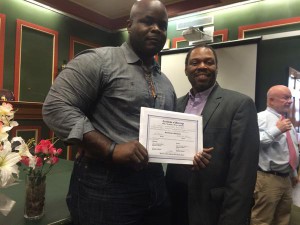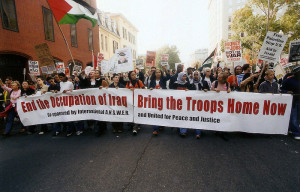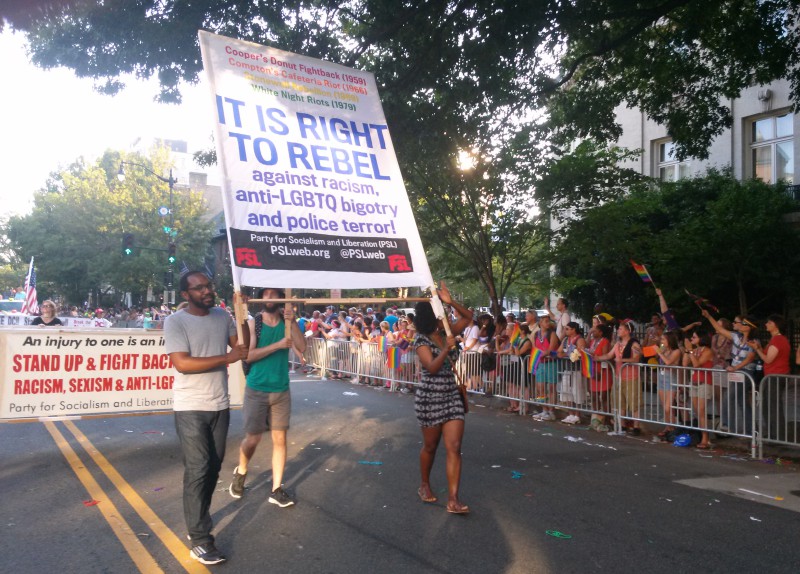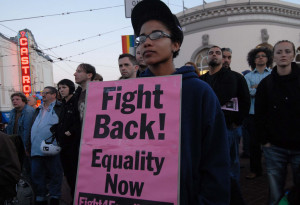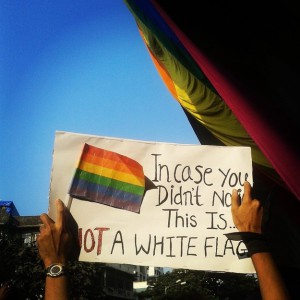July/August 2015
Preamble
The following document was written by Sarah Sloan, Radhika Singh and Nathalie Hrizi, and initially circulated on July 4, 2015, as an internal document for discussion amongst members of the PSL. Throughout the course of two weeks of internal discussion, updates were made and it was approved by the Central Committee for publication at its July 19, 2015, meeting.
This document is an articulation of the official position of the PSL, and conforms to earlier adopted resolutions and to the Party Program. We oppose all forms of bigotry and discrimination based on sexual orientation or gender.
This position derives not only from the study of Marxism but also accumulated experience over decades in the struggles of the LGBTQ community. From the Stonewall era to the present, PSL members and leaders have been on the front lines in struggles against anti-LGBTQ violence, in confronting right-wing bigots and reactionary laws, during the sharp confrontations of the AIDS epidemic, in early battles for trans rights and inclusion, and in the movement for marriage equality, among others. Within this movement, PSL members have always projected anti-racist and anti-imperialist politics: genuine working-class unity.
This official position is meant to inform Party branches and members in their presentation to others on this issue, for both in-person and online communications, so that all Party bodies and members are functioning in conformity with the principles of democratic centralism.
The recent 5-4 Supreme Court ruling that legalized same-sex marriage through-out the United States aroused a storm of opposition by the forces of right-wing bigotry. Some who consider themselves left also attacked or derided the historic achievement of formal, legal marriage equality because it did not solve the underlying problems of oppression experienced by the LGBTQ community. Using this formula, however, would be similar to having assumed a derisive attitude toward the passage of the 1964 Civil Rights Act, which legally ended apartheid and the “separate but equal” Jim Crow laws but did not end the underlying oppression of the African-American community, or toward the passage in 1920 of the right of women to vote in the United States, which achieved the legal right of women to participate in politics but did not end the oppression that women experience on the job, at home and in society.
This document is written to clarify that the PSL and its members fully and unconditionally embrace the achievement of legal equality for the LGBTQ community when it comes to the right to marry.
Points of unity
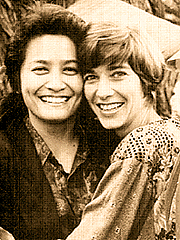
Genora Dancel (left) and Ninia Baehr (right), two of the plaintiffs in the first successful lawsuit about marriage rights, which went to the Hawaii Supreme Court in 1993
It is worth noting for those who saw the pictures with a sea of flags and signs of the Human Rights Campaign and other major national organizations on the day of the Supreme Court ruling in Obergefell v. Hodges (June 26, 2015) that it has only been in the very recent past that the national LGBTQ organizations and the Democratic Party have thrown in their support for federal marriage equality. These organizations did not start this movement. In fact, they actively opposed it.
Ninia Baehr, one of the plaintiffs in the first successful lawsuit about marriage rights, which went to the Hawaii Supreme Court in 1993, described it this way: “This was not a strategy or a plan hatched by the mainstream movement. This was a ragtag group of people who were tired of being second-class citizens. The plaintiffs and their supporters were working-class people of color, lesbians, transgender people, drag queens, people in bars. It was not the white elite of the gay movement. It was not the rich lawyers.”
In February of 2004, when then-Mayor Gavin Newson began issuing marriage licenses in the City and County of San Francisco, the national organizations and Democratic Party opposed it. They waged a weak campaign against California’s bigoted Proposition 8 in the November 2008 election, and they stridently opposed filing a lawsuit against Prop. 8, going so far as to publish a “warning” titled “Why the ballot box and not the courts should be the next step on marriage in California.”
This statement was signed by the ACLU, GLAD, Lambda Legal, NCLR, Equality Federation, Freedom to Marry, GLAAD, HRC, and the National Gay and Lesbian Task Force (now known as the National LGBTQ Task Force). It concluded with this: “We lost the right to marry in California at the ballot box. That’s where we need to win it back. Reversing Prop 8 at the ballot in California will set a powerful political precedent and help change the national climate. We can persuade the hundreds of thousands of fair-minded but still-conflicted voters we need, if we do the work. So let’s get started now.”
Even as the fight against Proposition 8 succeeded in the courts, these groups initially only moved to a position of supporting a state-by-state strategy. It was not them but rather a mass movement of young people that demanded “Full equality for all LGBT people in all matters governed by civil law in all 50 states. Now.”
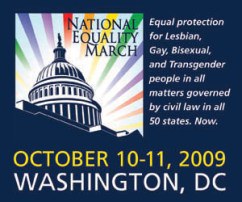 The National Equality March in October 2009 was organized through social networking and word of mouth. The well-funded national organizations did not mobilize in any significant way. In fact, on the eve of the march, Joe Solmonese, then the president of HRC, said in “Joe’s Weekly Message” that the community should wait—that President Obama should be given until January 19, 2017, the last day of his second term. This was less than nine months into Obama’s first term! President Obama turned down an invitation to speak at the rally and instead spoke the night before at a fundraising dinner for the HRC.
The National Equality March in October 2009 was organized through social networking and word of mouth. The well-funded national organizations did not mobilize in any significant way. In fact, on the eve of the march, Joe Solmonese, then the president of HRC, said in “Joe’s Weekly Message” that the community should wait—that President Obama should be given until January 19, 2017, the last day of his second term. This was less than nine months into Obama’s first term! President Obama turned down an invitation to speak at the rally and instead spoke the night before at a fundraising dinner for the HRC.
It was only when more than 250,000 people—mostly young people spurred to action by the passage of Prop. 8 the year before—came into the streets of Washington, D.C. that things began to shift.
Cleve Jones, who began as an intern of Harvey Milk and later conceived of the AIDS quilt, made clear in his speech at the National Equality March the differences that existed in the movement:
We are equal. We are equal. And you, if you believe that you are equal, then it is time to act like it. A free and equal people do not tolerate prioritization of their rights, they do not accept compromises, they do not accept delays, and when we see leaders and those who represent us say you must wait again, we say no, no, no longer will we wait. You heard our president give a beautiful speech. He delivered it well. But he did not answer the question when. And there are those who say that we must wait for our president and give him some time because we’ve got wars and we’ve got an economy in a tailspin. But we remember eight years of peace and prosperity under another Democrat, a man named Bill Clinton, who went to our parties, who took our checks, who wrote flowery proclamations and gave some of us some great jobs, and what did we get out of that, we got Don’t Ask, Don’t Tell and the Defense of Marriage Act. We say no more, no more, no more.
Jones reviewed some of this history when speaking on June 26, 2015, in San Francisco, the day of the Supreme Court’s Obergefell ruling:
… If you want to know who gets credit for this amazing victory, it’s you. And don’t ever forget, don’t ever forget that back in 2004 when Mayor Gavin Newsom and City Attorney Dennis Herrera opened the doors to City Hall and issued same-sex couples marriage licenses, they were opposed by every major national gay and lesbian national organization in this country and the Democratic Party. In 2008, when we decided to go to federal court to challenge the passage of Proposition 8, that was opposed by every major national gay and lesbian national organization in the United States and the Democratic Party.
Thankfully, we ignored them. Harvey Milk taught us to be bold, to come out, to take risks. He understood that only when we pushed, only when enough of us said we want everything and we want it now, was there any hope of getting anything, ever. And that’s what we did.
And I have a special debt of gratitude of the young people, who after the passage of Proposition 8 took to the streets by the tens of thousands … and we stayed in the streets until we won. So when history looks back at this time, it’s not about the names of the people or the organizations, it’s about the strategy, what worked and what didn’t work. What we did worked. …
Harvey taught us something else. He taught us that our struggle was not just about us. That our efforts were part of a larger, global movement for peace and for social justice. And that we were part of all those ordinary people all across the planet who oppose war, who oppose racism, who oppose poverty. And we take our rightful place in the ranks of all those ordinary people.
Today as we celebrate, on the other side of the country, in Charleston, South Carolina, people are deep in grief and mourning. … I would like you raise your hands and make a promise that all of us here tonight pledge that we will do whatever we can, whenever we can, to fight back and speak out against racism in our own community and the society at large. It is one struggle. It is one fight. …
The point here is that the movement for marriage equality came from the grassroots in the context of the fight for full equality for all. The fact that the national organizations came on board is a reflection of the power and success of this movement. The fact that it led to the formation of “single-issue” organizations is not a negative development—this is a common and practical way for grassroots movements to pursue and achieve a particular reform.
We hope that these organizations will now work for the full implementation of this reform, and for further reforms that better the living standard and quality of life in any way for working-class people.
There has been resistance to the implementation of the Obergefell decision in a number of states, particularly in the South. There has been work county by county in some states to work with clerks and ensure that marriage licenses are being properly implemented, and among state agencies to ensure proper recognition in matters such as state-run health plans, tax filings and issuing identification. This is important work that we fully support.
The fact that this grassroots movement has won what seemed like an impossibility just over 10 years ago—and in such a short period of time—is a tremendous victory for the working class. The ruling class does everything in its power to separate working-class people from politics, to make us think that the status quo is unchangeable and that we can do nothing more than vote for this or that capitalist politician.
As revolutionaries and communists, we celebrate all progressive grassroots victories, and see them as opportunities to help the working class see that the people’s intervention can be the decisive factor in history. Our focus at the time of a major victory is not to have the most left critique of it and the forces involved in it, but instead to show that it is a victory that came from the struggle of the people—not from the capitalist politicians or courts. In this case, even the Supreme Court’s opinion recognized that the outcome flowed from the public opinion in the country, which has shifted dramatically in a remarkably short period of time because of the people’s struggle.
A common perception is that the Court sits on high, and moves the country in a certain direction. Here, the people moved the Court, as can be seen in the way it wrote about how it has gained an “enhanced understanding of the issue”:
There have been referenda, legislative debates, and grassroots campaigns, as well as countless studies, papers, books, and other popular and scholarly writings. There has been extensive litigation in state and federal courts. Judicial opinions addressing the issue have been informed by the contentions of parties and counsel, which, in turn, reflect the more general, societal discussion of same-sex marriage and its meaning that has occurred over the past decades.1
Ten years ago—actually, even five years ago—it was unimaginable that the Supreme Court would rule in 2015 that under the Constitution, same-sex couples are equal in the eyes of the law and so are entitled to the fundamental right of marriage, including access to all of the legal rights and economic benefits that are attached to that institution.
Now, as a direct result of this widespread, grassroots struggle, the visibility and humanity of LGBTQ people—including trans people, who face a super-oppression in this society—has reached a level never before seen in class society. The fact that Laverne Cox appeared on the cover of the June 9, 2014, issue of TIME magazine under the headline “The Transgender Tipping Point: America’s next civil rights frontier” is just one example of how far things have come.
Recognizing this does not erase the fact that there is a crisis of violence and bigotry, a struggle for many to survive, but we truly had reached a tipping point. LGBTQ kids, including trans kids, coming out at a younger and younger age and fighting for their rights is a sure sign of this. Just this month, a Girl Scout chapter returned a $100,000 donation because the donor prohibited its use for trans girls—and in just the first day, a crowd funding campaign raised more than $230,000 (and raised $338,282 in one month) under the banner “Girl Scouts is #ForEVERYGirl.” That would not have happened just a few years ago.
The LGBTQ rights struggle coming into the mainstream and achieving some level of bourgeois acceptance is not a bad thing—it is a reflection of how far the struggle has come. While we do not want to engage in any patriotic idealization of any branch of the U.S. government, we can also recognize that since, as Marx said, the ideas of any society are the ideas of its ruling class, it is an advance to have increased the level of acceptance of LGBTQ people that exists in all areas of this society.
So when the White House turns on rainbow colored lights, or corporations put rainbow flags on their logos, or celebrities express their support, or when 26 million people superimpose rainbows over their Facebook profile pictures in a period of three days, it is a positive reflection on how far the struggle has come. It does not change the character of the U.S. government and it is not liberation, but it is not a negative development. Even when enemies of the working class like Hillary Clinton change their position, we view this as a reflection of the power of the movement.
We do not reject things simply because they are accepted by the mainstream; in fact, one of our primary objectives is the popularization of ideas of socialism, liberation and true equality for all. These things show that the people—LGBTQ people who refused to live in the shadows and those who came to support their struggle—changed history and can continue to change it.
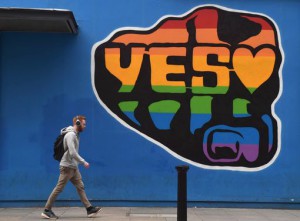 “For this referendum is not only about marriage. If it passes, it will disinfect prejudice – not all, but some. It will throw sunlight onto the terrible shadows in which so many exist, rather than live. And it will, I am convinced, trigger a colossal institutional shift that will trickle down through every part of society, for the better.” – Declan Cashin, journalist
“For this referendum is not only about marriage. If it passes, it will disinfect prejudice – not all, but some. It will throw sunlight onto the terrible shadows in which so many exist, rather than live. And it will, I am convinced, trigger a colossal institutional shift that will trickle down through every part of society, for the better.” – Declan Cashin, journalistWe recognize that marriage is an economic institution under capitalism that affords legal rights and economic benefits to those who engage in it. Many of these rights and benefits are critically important for working-class people, and so as revolutionaries and communists, we fight for access to them.
There are 1,138 benefits, rights and protections provided on the basis of marital status under federal law. Just a few that are particularly important to working-class people include the ability to secure access to health insurance for a spouse; to access life insurance and retirement benefits in the case of the death of a spouse, and to an inheritance without paying taxes; to access tax deductions and credits; to parental rights; and to immigration status granted on the basis of marriage.
While United States v. Windsor, the case in which Section 3 of DOMA was ruled unconstitutional in 2013, was of critical importance in terms of federal benefits, the 2015 Obergefell ruling is of critical importance in terms of access. Being able to access marriage without the expense of travel out of state (and potentially to an entirely different region of the country), to access benefits that are based on the recognition of your marriage in the state in which you reside, to have the freedom to travel and move between states without concern for the recognition of your marriage—all of these are extremely important to poor and working people.
Despite some mainstream stereotypes on what the LGBTQ community looks like and where LGBTQ people reside, the importance of access is most important to the poorest couples, many of whom live in the South where most have lacked access to marriage almost entirely.
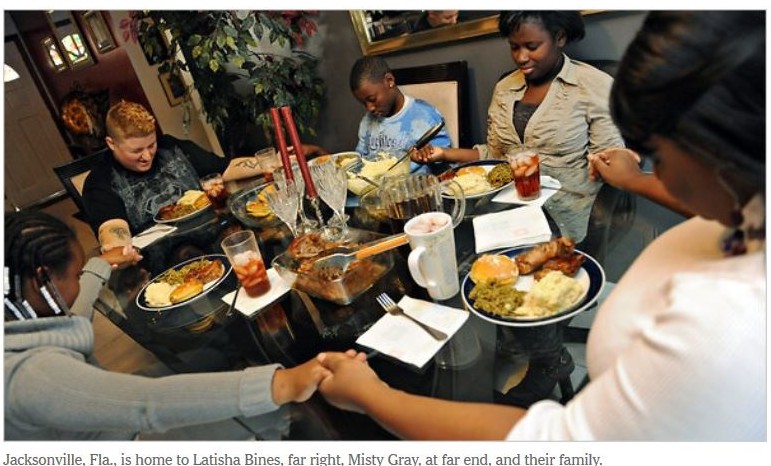
A Jan. 19, 2011, New York Times article titled “Parenting by Gays More Common in the South, Census Shows” detailed statistics showing that same-sex couples in the South are more likely to be raising children than in other parts of the country.
…the data show, child rearing among same-sex couples is more common in the South than in any other region of the country, according to Gary Gates, a demographer at the University of California, Los Angeles. Gay couples in Southern states like Arkansas, Louisiana, Mississippi and Texas are more likely to be raising children than their counterparts on the West Coast, in New York and in New England. … Black or Latino gay couples are twice as likely as whites to be raising children, according to Mr. Gates, who used data from a Census Bureau sampling known as the American Community Survey. They are also more likely than their white counterparts to be struggling economically.
These couples are most in need of the parental rights associated with marriage.
A report by the National Gay and Lesbian Task Force Policy Institution and the National Black Justice Coalition (Second Edition—2005), titled “Black Same-Sex Households in the United States,” demonstrates why marriage equality was so significant, finding that:
- At the time of the 2000 Census, there were almost 85,000 Black same-sex couples in the U.S.—making up 14% of same-sex couples identified in the Census.
- Black same-sex couples report lower annual median household income than Black married opposite-sex couples and lower than white same-sex couples, and were less likely to report home ownership.
- Black same-sex households are nearly twice as likely as white same-sex households to live with a child under 18.
Lower-income couples are, of course, most in need of the economic benefits associated with marriage.
Here are just two specific examples of the rulings’ impact on the lives of working-class people:
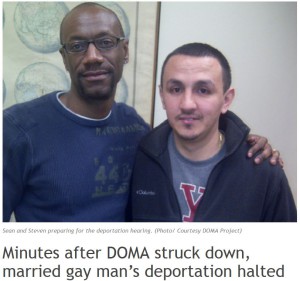
Within 30 minutes after the Windsor ruling came down in 2013, a New York City Immigration Judge stopped the deportation of a Colombian man married to an African American U.S. citizen. One of the attorneys, Lavi Soloway, described what happened: “A copy of the 77-page Supreme Court decision in United States v. Windsor was delivered to the court by our summer intern, Gabe, who ran five blocks and made it in time for the decision to be submitted to the Immigration Judge and to serve a copy on the Immigration & Customs Enforcement Assistant Chief Counsel.” For these two men, that ruling changed the course of the rest of their lives.
Just before the most recent Supreme Court ruling in Obergefell, a deli worker at a Kroger grocery store in Michigan filed an employment discrimination complaint because Kroger refused to cover health benefits for her wife. For these two working-class women in the Midwest, this ruling is of critical importance.
Exactly 12 years prior to its most recent ruling, the Supreme Court made its first major ruling in support of LGBTQ rights in Lawrence v. Texas (2003), the case that ruled unconstitutional the bans on sodomy that still existed in 13 states. With this ruling, the Supreme Court reversed its own decision from 17 years earlier in Bowers v. Hardwick (1986). Wherein the Bowers ruling was a major setback that legitimized a myriad of types of attacks on and bigotry against the LGBTQ community, Lawrence was a huge advance that reached far beyond the issue of sodomy.
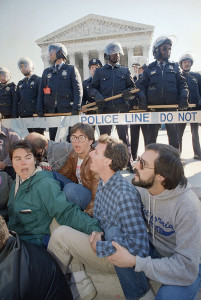
Protest at the U.S. Supreme Court, October 13, 1987, following the Second National March on Washington for Lesbian and Gay Rights
Prior to the 2003 ruling, state sodomy laws were used to unleash a reign of police terror and criminalization of gay men. It was a pretext to brutalize, imprison and out gay men, which led to further brutalization and bigotry. Once someone was outed, men and women, civil law was used against them, particularly in the context of familial disputes where many women and men lost custody of their children.
Given this history, it was a very sound legal strategy to begin with a focus on overturning the sodomy laws and fighting on issues related to family law. The issue of marriage flowed from this not because of “love,” but because of the legal, economic and social rights that were being denied.
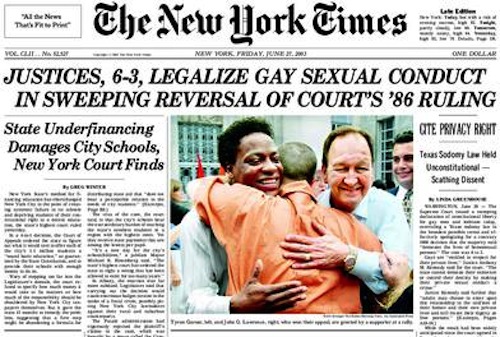
Front page of the New York Times after the 2003 Lawrence v. Texas decision invalidated state anti-sodomy laws. The struggle for marriage equality has been bound up with the struggle to decriminalize LGBTQ sexual conduct.
Prior to Lawrence, in its 1996 decision in Romer v. Evans, the Court first ruled that a state constitution could not prevent the government from protecting people against discrimination based on sexual orientation. Moving forward, each legal victory laid the basis for the next—from Lawrence to the state marriage cases to United States v. Windsor to Obergefell v. Hodges. And Obergefell lays the basis for further legal victories on unresolved areas, including employment, discrimination on the basis of gender identity and gender expression, and much more.
Perhaps at times the right wing has seen this more clearly than the left. In his dissent in Lawrence, the notoriously reactionary and bigoted Justice Antonin Scalia recognized that it cleared the basis for marriage equality, and in fact, Lawrence was cited in the successful Massachusetts marriage ruling in 2003. Scalia wrote, “What justification could there possibly be for denying the benefits of marriage to homosexual couples?” Ten years after Lawrence, Scalia said that the Windsor decision “arms well every challenger to a state law restricting marriage to its traditional definition.” As Scalia predicted, Windsor was cited in a slew of victories at the state and federal level.
The argument that the ruling does not help or even negatively impacts trans people is false. In fact, bans on same-sex marriage were used to prevent some trans couples from marrying when coupled with bans and other obstacles to correction of birth certificates and other identifying documents. This ruling is a big step forward for trans people and others who want to get married, regardless of whether they have corrected their gender on legal documents or conform to the gender binary, because it is a major step toward removing the gendered elements from marriage. Marriage is not going to be defined as “between a man and a woman or a man and a man or a woman and a woman”—it is going to be defined without gender.
States will have to revise their marriage eligibility requirements and forms to conform to this ruling, and to the extent that they do not on their own, the ruling provides the basis to force that change. In New York City, for example, selecting a gender is optional, and you may be identified as Spouse A and Spouse B. In San Francisco, parties may identify as “bride,” “groom,” as both or as neither, and there is no question on the marriage application related to gender.

This Young Conservatives cartoon published after the recent Supreme Court decision reflects the fact that “not since Brown v. Board of Education has such a blow been dealt to the reactionary concept of ‘states’ rights.’”
As did Lawrence and Windsor, the recent Supreme Court decision in Obergefell lays the groundwork for future victories. Many are likening its significance to Brown v. Board of Education. While there are many valid distinctions between the two cases—and indeed the manifestations of the struggles leading to each one—we recognize that not since Brown has such a blow been dealt to the reactionary concept of “states’ rights,” which has been used to uphold the most violent forms of bigotry in the history of the United States.
The Obergefell decision has no negative legal impact on any individual or group of people. In fact, the door has been kicked open for the movement to march through. We must actively give leadership to and support this continuing movement for equality and liberation.
Since the Obergefell decision, there have been a number of significant developments in other spheres, some directly impacted and some indirectly impacted by the decision, including:
- On June 29, the Department of Justice—an arm of the U.S. government—filed a statement of interest in federal court supporting a transgender teenager. They made the legal argument that the school board in his Virginia county violated his rights when it passed a policy prohibiting trans students from using bathrooms that do not correspond to their “biological genders.” The DOJ attorneys argued that discrimination based on gender identity constitutes sex discrimination, which is outlawed under Title IX of the Education Act of 1972. This is similar to a statement of interest that federal lawyers filed in a Michigan case earlier this year.2
- On July 1, the U.S. Episcopal Church General Assembly voted to allow clergy to perform marriages for same-sex couples. They struck the words “man and woman” from their marriage canon and replaced it with gender-neutral language.
- On July 10, the Executive Committee of the Boy Scouts of America voted unanimously to end the ban on gay adults serving as leaders of scouting troops, and the full Executive Board voted to ratify that resolution on July 27, though they are allowing individually chartered groups to continue the ban.
- On July 13, the Secretary of Defense ordered a review of the ban on transgender people serving openly in the armed forces.
- On July 16, the Equal Employment Opportunity Commission issued a ruling explicitly stating that Title VII of the Civil Rights Act of 1964 prohibits discrimination against someone in the workplace and in employment decisions because of their sexual orientation. The ruling also contained language that discrimination based on gender identity is prohibited.
- On July 23, The Equality Act was introduced in the House and Senate. It seeks to expand the 1964 Civil Rights Act to ban discrimination based on sexual orientation and gender identity in seven categories: housing, education, federal funding, employment, the extension of credit, jury selection, and public accommodations and facilities (such as restrooms).
- On July 30, Colombia’s Constitutional Court, the top court in the country, held a hearing on whether it should interpret its constitution as giving marriage rights to same-sex couples. The court explicitly takes into account foreign precedent and international human rights law, and is considering whether international standards now require that marriage equality be recognized as a fundamental right.
Of course, there have not only been victories. On July 14, in its first vote since the decision, the Senate failed to pass an amendment to the Every Child Achieves Act that would have banned discrimination against LGBTQ students in public schools; the measure got 52 out of the 60 votes needed. In Texas, a right-wing organization collected signatures to place a referendum on the ballot in Houston to overturn a nondiscrimination ordinance passed by the City Council in 2014. Despite a dispute about the validity of the signatures, the Texas Supreme Court ordered the City Council to either repeal the ordinance or place the referendum on the ballot.
We recognize the limits of legal rulings, legislative action and policy decisions, and that no one decision can encompass every individual, but we also recognize that under the current legal system, each victory is cause for celebration—and this is a profound and historic victory, the effects of which are rippling through many aspects of society and expand beyond marriage.
While we do put forward reform demands, we do not call for the abolition of marriage under capitalism. While we recognize that the pairing marriage as it exists today arose with the advent of class society and coincided with the beginning of the oppression of women and LGBTQ people, we are not oriented toward the dismantling of this institution at this time.
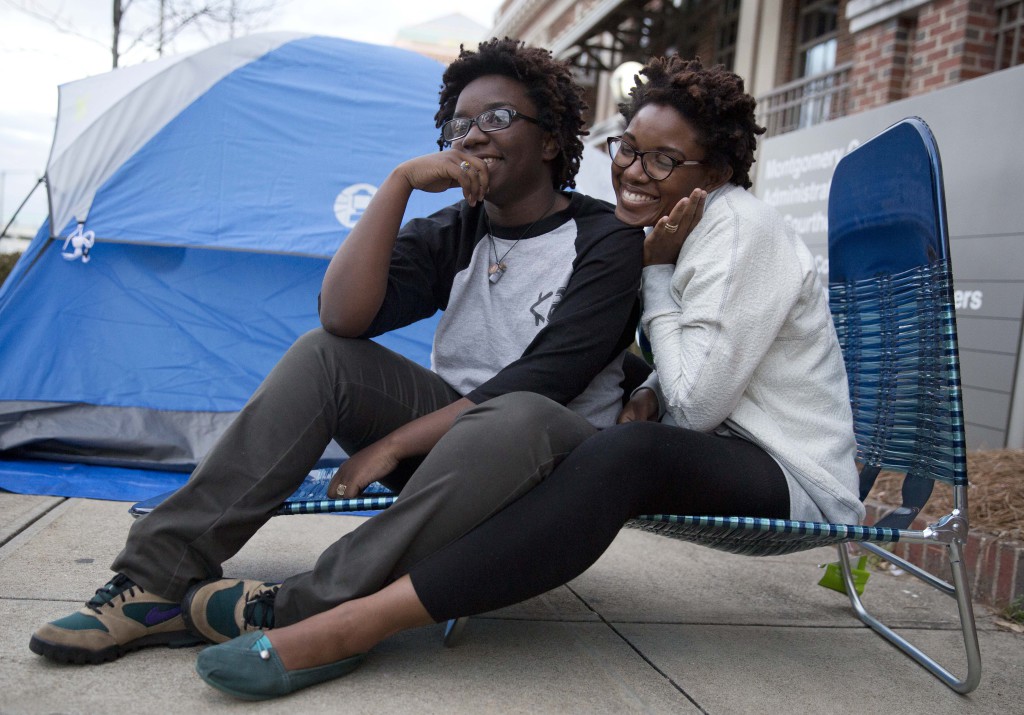
Shante Wolfe and Tori Sisson camped out near the Montgomery County, Alabama, courthouse in hopes of becoming the first couple to marry in Alabama (they were) when some counties (temporarily, as it turned out) began issuing marriage licenses to same-sex couples on Feb. 9, 2015.
We take a neutral position about engagement in this institution—we neither encourage nor prohibit or criticize it—and we recognize that people engage in it for legitimate legal, economic, social and cultural reasons. We take issue with the language in the Supreme Court decision that lauds marriage as necessary to complete a family. We view marriage as an economic construct separate and apart from interpersonal relationships.
We recognize that, as long as marriage exists as a central institution in society, to exclude people from it on the basis of their sexual orientation or gender constitutes a manifestation of bigotry that must be stridently fought and overturned.
We look forward to a society in which human relationships are free from capitalism and all of its inherent oppression. In the Communist Manifesto, Marx and Engels wrote: “The bourgeois family will vanish as a matter of course when its complement [marriage] vanishes, and both will vanish with the vanishing of capital.”
The PSL rejects ultra-left, sectarian attacks that are directed against the so-called inadequacy of political, social and legal reforms that have been won as a consequence of struggle. Such attacks only have the impact of promoting cynicism, pessimism and passivity. Revolutionaries, however, champion every meaningful reform because each struggle for each reform leads to an ever-greater struggle. That is the dialectical interrelationship between the battle for reforms and the battle for revolution.
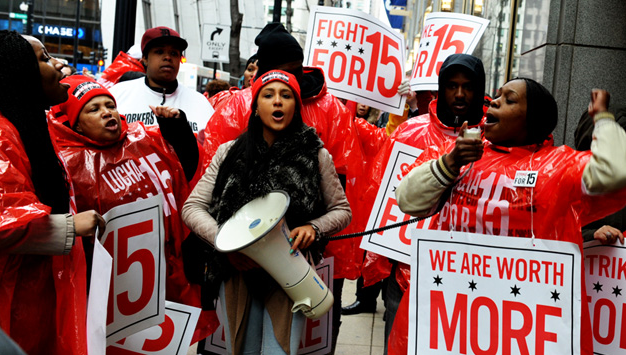
As revolutionaries and communists, we have been engaged in numerous struggles for reforms under capitalism. Our comrades and our Party have been actively organizing in movements and in the streets to win a $15 wage and a union, and to end war and occupation in Iraq, Afghanistan and elsewhere—to name just two examples. We do not approach these struggles naively but rather from a point of understanding. We understand that a complete overhaul of the capitalist system and its replacement with socialism is ultimately necessary. We understand that the struggle for reforms is part and parcel of this larger struggle to confront the capitalist system.
Reforms that challenge the status quo and make a qualitative difference in the lives of the working class can relieve the intense oppression felt by sectors, often the most oppressed sectors, of the working class. Given the extreme loss in real wages over the last 40 years, a $15 minimum wage will barely bring workers’ salaries up to the level of 1970s, much less secure a living wage for workers, especially in some of the most expensive urban centers of the country. But we still engage in and support this struggle because we recognize the importance of the reform to millions of workers who make less than $15 an hour. We also recognize the central factor of the mobilization of low-wage workers in the overall climate of union busting and push-backs against previous gains made by workers. If we were to win the $15 minimum wage nationally tomorrow, we would certainly recognize the need for increased struggle and organization, but we would not undermine the victory or question its validity because it does not solve all workers’ problems.
The victory of marriage equality is an example of such a reform. A civil right has been won by millions of oppressed people who were previously denied that right. It is a step forward for equality. It also has ramifications for LGBTQ parents and couples in many aspects of their daily lives from parental rights, to visiting rights, to medical decisions, to health care and taxes, to interactions with the prison system and so on.
The very winning of reforms can push forward the struggle of the working class and enable oppressed peoples the breathing room to engage in even more struggle. The struggle for reforms—even those we are not able to gain—builds consciousness, and can lead to more revolutionary or radical struggle. Moreover, the ruling class knows the danger of these reforms, and fights tooth and nail against them. There is a reason these reforms are won by struggle—by fierce, relentless organizing and movement building. The rulers of the capitalist system do not like to see their power chipped away at. They seek to keep our class as oppressed as possible. As revolutionaries and communists, we too must recognize the power and importance of the struggle for and achievement of reforms under capitalism.
A recent example is the successful struggle to have the Confederate battle flag removed from the South Carolina State House. There was an ultra-left critique for focusing on the Confederate flag rather than the U.S. flag that failed to see the potential for this struggle to go far beyond South Carolina and become a galvanizing moment in the struggle against racism. Struggle does not occur in a vacuum. Over the course of the past two years, the movement against racist police terror has galvanized the broader movement against racism. And this particular struggle was successful because people of all nationalities unified and spoke out against racism, and the flag as a symbol of that racism.
The removal of the flag from the State House in Charleston has significance far beyond one flag in one location. Since that flag came down, there has been growing momentum nationwide to begin removing and banning the flag and other Confederate imagery across the country, from the National Cathedral in Washington, D.C., to the City of Fresno, California, to large retailers such as Walmart, eBay, Sears, Target, Etsy and Amazon banning sales, to the #NoFlaggingChallenge where people feel empowered to pull down flags and use social media to encourage others to do the same. Of course, there also has been a right-wing backlash from racists. They have failed to gain much ground, but this backlash speaks to the need for unity in this struggle.
If we were to reject the struggle for reforms under capitalism and accept only those struggles that directly and radically confront the entire system, we would place ourselves outside and apart from the masses of people, both in actions and in consciousness.
We are actively engaged in building a party that draws from all sectors of the working class. We seek to build the strongest possibly revolutionary party that is in touch with and participates on all levels with the masses of people, most especially in times of crisis. The Party—while it draws members from the most revolutionary elements of the LGBTQ community and interacts directly with the LGBTQ struggle—cannot substitute itself for the community or for the LGBTQ movement. What then is our role in relationship to the LGBTQ movement in general, and to the building of a struggle that can win LGBTQ liberation?
We want to reach the masses of LGBTQ people, with revolutionary and principled politics that seek to expand class consciousness and build toward liberation. First and foremost, we must stand with the community. We must be ready to confront individual and institutional bigotry at every turn. We also must be ready to struggle for reforms—which, under capitalism, can only be limited—that relieve the oppression of the LGBTQ community and continue to open avenues of struggle. We want to win the trust and the partnership of the sections of the LGBTQ movement that are willing to confront the system, but we do not reject building alliances with sections that are not ready to confront the system but are willing to struggle, in a principled way, against bigotry and oppression. In other words, we look to place ourselves within the struggle and, where we can, push that struggle to more revolutionary purpose and provide leadership in a revolutionary direction. We are not a tail to the kite of any part of the movement—we seek to help form a vanguard party of the entire working class.
This cannot be achieved by just immersing ourselves in the tiny fraction that considers itself left. Likewise, it cannot be achieved by attempting to be the most left voice or the ones who make the most revolutionary pronouncements without an eye toward bringing revolutionary consciousness to the masses of people. Sometimes, doing this can actually put leftists on the same side of the reactionaries they purportedly seek to undo. Leftist so-called revolutionaries who have lost touch with the masses of people or have no interest in building the movement and the struggle, have denigrated the marriage equality victory in the same tone and with the same fervor as the right-wing bigoted Christian fundamentalists. Some of the most fervent ultra-leftists can appear to stand on the same side as the Texas attorney general who told county clerks that their personal individual religious beliefs are more valuable than what had become the law of the land.
The politics of individualism have a right-wing and a left-wing face in this regard. But, more importantly, this approach almost always isolates the left from the masses of people—cutting a cord that is vital to the task of building consciousness and expanding revolutionary struggle. We cannot just tell people how to feel because we believe we know more than they do. We must meet them in action and in the streets with popular revolutionary ideas that are crafted to move the struggle forward.
This year’s Chicago Pride was blocked by a contingent that in many ways espoused political ideas we would agree with—against the gentrification of neighborhoods, and for the need to struggle against racism and anti-trans bigotry. The problem with the attack on a Pride march was not the politics themselves necessarily—it was the conclusion.
Their conclusion was to equate the Pride parade with the source of racism and bigotry. The real source of racism and bigotry is not the Pride parade, despite all its myriad contradictions and the definite presence of ruling-class elements within the parade—it is the capitalist system.
The political leadership and official messaging of Pride parades has changed since their inception in the early 1970s. The initial actions confronted the system in a way that the current actions do not. During the first years of Pride, parades condemned police raids and corporations like Coors. Today police departments, politicians and many major corporations dominate the parades in a way that is highly distasteful to progressive people. The fact that they are all there, of course, is a measure of how far the struggle has pushed them.
Yet despite who is dominating the parades, this does not mean that Pride itself has become a symbol of reaction or a ruling-class tool. There are millions of LGBTQ people who march in the parades and line the streets as a way of asserting their existence and pride, as a recognition of the LGBTQ struggle, and as a means of continuing to demand equality in every aspect of a society that has not afforded the community full equality.
We want to be with them, reaching them with a political message. Our participation in the parades is geared to them. As the parades become more and more diluted with commercialism and establishment politics, our marching with a political message against bigotry, racism and the system, and for militant fight back and struggle is a vital intervention for us to make every year.
In the current climate, the counterposing of struggles or issues has manifested in statements like, ‘We can’t talk about marriage when there are other issues our community faces,’ or ‘We can’t have Pride or celebrate because there are is still oppression,’ or even ‘There is no gay celebration without trans violence.’ Each of these statements rings hollow with regard to historical perspective. They deny the historical legacy of the treatment of LGBTQ people—of beatings and harassment and brutality, threats to job stability and families, and the tremendous impact of the AIDS epidemic.
Tens of thousands of lives and livelihoods have been lost to the capitalist system’s oppression of all LGBTQ people. This has impacted LGBTQ people of every nationality and income level. Winning marriage equality is a gain. While it does not directly challenge national oppression, it benefits people of all nationalities. Statements condemning the marriage equality victory undermine what is really needed—unity to fight for full equality for ALL oppressed peoples. All such statements ultimately divide us and undermine attempts to build a truly massive challenge to the capitalist system. They are reactionary statements made with left covering.
The ruling class seeks to divide our class based on nationality, gender, sexuality, age and so on. It would be foolish for working-class revolutionaries to seek to do the same. We recognize the weight of oppression is heavier on certain sectors of our class, that the very intention of the ruling class to divide us and to super-exploit sectors of the working class means that oppressed nationalities and others who experience special oppression experience the full brunt of the brutality of the capitalist system.
We recognize that some LGBTQ people feel that they and the issues with which they grapple are marginalized in the community. As revolutionaries and communists, we must fight for unity within the LGBTQ community, and against the counterposing of some members of that community to others. We should fight for all those in the LGBTQ community to recognize this development as the victory that it is, and to fight against any attempts to divide the community and the larger working class. To deny a victory because oppression still exists is counterposing struggles and is something we reject. At the same time, we must fight against all backwards views within the community, and for it to keep struggling against all manifestations of oppression and bigotry.
Our Party is intrinsically devoted to the struggle against racism, sexism, all manifestations of anti-LGBTQ bigotry and all other manifestations of bigotry and oppression.
However, this does not lead us to a conclusion whereby we deny certain struggles or the centrality of certain issues because those struggles or issues do not encompass every other struggle or issue under capitalist society. We are not engaged in a competition to identify who is more or less oppressed than another. We are engaged in battle with a system that requires we unify ourselves to fight back.
The idea that we do not counterpose issues or struggles is a particularly important point right now when acts of terrorism are targeting Black churches across the South. If we are to really pursue our goals of multinational unity amongst the entire working class, as well as the building of a revolutionary movement, we must confront oppression in all its forms. We must openly and actively challenge its source—the capitalist system and the ruling class of that system.
There is no equation in which equal marriage rights somehow undermines or denies the super-oppression and severe conditions faced by African American people in this system. Celebrating a victory for equality, the reversal of inequality, the reduction of oppression, does not automatically deny or undercut the need for continued struggle for full equality.
One of the arguments made to counterpose the Black struggle against the LGBTQ struggle is the racism within the LGBTQ community as well as the way some major organizations have conducted themselves within the marriage equality campaign—which they joined late in the game.
Racism—like sexism and anti-LGBTQ bigotry—should be confronted wherever it manifests itself. But the fact that it infects and affects a section of an oppressed community does not mean the victories won by a movement of that community are negated or somehow automatically counterposed to the Black struggle. Those making this argument are confusing the systematic problem, racism—which needs to be fully uprooted—with the true class enemy, the ruling class and the capitalist system. Following this false logic, during the 1960s, revolutionaries and LGBTQ people would have had to counterpose voting rights gains made by the African American community (and any progressive gains made by any community) against the LGBTQ community because many in the Black community shared prejudices against LGBTQ people that were prevalent at the time.
At the same time, the existence of pro-ruling class and pro-capitalist forces within a community or movement does not mean that movement is to be equated with the ruling class itself. The vast majority of unions in the United States are just as tightly linked with the Democratic Party as the mainstream LGBTQ organizations and African American organizations. This fact, or the reality that a particular union has either a right-wing or a liberal leadership, does not mean that we dismiss unions or that we call for their dissolution. We do not abandon the rank-and-file workers who are members of these unions. We want to be with them in the struggle, speak to them where they are at, and help to give leadership to advance the struggle.
We have repeatedly identified as a primary objective the building of a mass movement independent of the leaders of the capitalist system. We seek to build unity among the members of our class, the working class, in our interactions with different struggles, and in our Party work. In many movements and community struggles, a variety of different forces exist. Some of them represent bourgeois or petty-bourgeois sectors of that particular community. But we do not equate the existence of these elements within a particular struggle with the capitalist system itself. We do reject the tactics and the narrow politics of these elements and seek to be part of the movement with the goal of uniting the entire working class, of becoming a pole of revolutionary and progressive consciousness that can move the struggle forward.
Within the LGBTQ struggle itself, we have witnessed the power of working class, anti-racist unity. In San Francisco, our members joined a major struggle against racism in the historic Castro district that took place in 2004-2005. Led by a multinational group of gay men who were appalled by the racist treatment suffered by African-American people at the Badlands bar, our members and the ANSWER Coalition formed core support for a fierce struggle against racism that was carried out in the legal apparatus of the city and in the streets of the Castro. At no point did we denigrate the LGBTQ community or question the gains of a certain sector of the community. The Badlands struggle never equated the rainbow flag with white supremacy or questioned the victories of the LGBTQ movement. We challenged the existence of racism within the community in a popular and consciousness-raising struggle led by members of the community that was necessary to build more, not less, unity.
It is true that different class forces exist within the LGBTQ movement and that the community itself is not immune to racism or sexism, or to bigotry within the community, including prejudice by some lesbian and gay people against trans people. But that truth does not serve as the basis for analyzing and understanding the reality of the victories won by the LGBTQ struggle. The argument that the victory for marriage equality is reserved for only a certain section of the community, or that the movement for “gay rights” is somehow segregated or operates on the denial of national oppression or gender oppression is patently false. Repeating these false arguments works counter to our goal of promoting and building working-class unity.
This is non-negotiable and non-debatable within the Party for Socialism and Liberation. We stand in solidarity and in support of “equality,” against those who oppose it, whether their opposition is from the right or the “left.”
The PSL believes that the only path toward a revolutionary transformation in the United States is by building a party that is reflective of the working class—meaning people of different nationalities, genders, sexual orientations, gender identities, gender expressions, ages, income levels, physical abilities and so on. We are building a party whose primary objective is revolution, and we are doing so because we believe that, while there are many different types of organizations doing good work, this is the only type of organization capable of the task, not just the talk, of revolution.
Conclusion
The marriage equality ruling is nothing short of a historic victory. We recognize it for what it is and celebrate it as such. This resolution lays out a thoughtful and political approach to this victory in the current political context, and for us as revolutionaries organizing for a socialist future. It also serves as a guide and a reiteration of our Party’s approach to mass struggles of oppressed peoples.
The victory is not tantamount to full equality under the current capitalist system nor is it liberation. There is still much to be done in the LGBTQ struggle.
The PSL continues to engage in this struggle. We are committed to the continued struggle for full LGBTQ equality, and, ultimately, for the liberation of all oppressed people, which will only be possible once we have overthrown the capitalist system, the very root of oppression itself.
